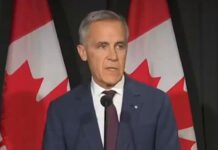INVC News
Geneva — : Global attention turns to the United Nations budget crisis as the organization braces for a significant financial crunch due to delayed and unpaid member dues. This unprecedented budget shortfall is compelling the UN to order drastic measures, including cutting 20 percent of staff across more than 60 offices, agencies, and operations worldwide. The move aims to stabilize finances and prepare for the forthcoming 2026 budget amid a growing challenge to maintain international programs and peacekeeping missions.
UN Budget Crisis: Member States’ Delayed Payments Trigger Workforce Cuts
With a current operating budget of approximately $3.72 billion, the UN’s financial framework is under severe strain. According to UN Controller Chandramouli Ramanathan, a 15 to 20 percent budget cut is required, directly translating into thousands of job reductions. UN spokesperson Stephane Dujarric confirmed that around 2,800 posts from the regular budget’s estimated 14,000 positions will be targeted, impacting critical functions in humanitarian aid, refugee support, gender equality, environmental programs, and international trade.
These cuts are mandated under the UN’s ongoing “80 reform initiative”, launched by Secretary-General Antonio Guterres to improve efficiency and realign resources. Agencies such as UNRWA, supporting Palestinian refugees, and major bodies like UNICEF, UNHCR, and WFP are preparing for significant staff reductions to meet new budgetary constraints.
Efficiency and Priority-Driven Cuts to Address Budget Deficit
The Controller’s directive to UN agency heads emphasizes evaluating roles based on impact and efficiency. Non-essential or overlapping functions face integration or elimination to reduce expenditure. Agencies must submit detailed proposals for these workforce reductions by mid-June to allow timely incorporation into the General Assembly’s 2026 budget deliberations.
The UN’s financial hardship stems from the failure of several member countries to pay their dues promptly. While 152 out of 193 members, including China, fulfilled payments last year, 41 countries—including the United States—defaulted. The US accounts for an estimated 22 percent of the regular UN budget, and China recently increased its contribution to 20 percent, underscoring shifting geopolitical funding dynamics.
Impact of U.S. Policy on UN Financial Health and Staff Reductions
The United Nations’ financial woes have been exacerbated by policy shifts under the Trump administration. Following a February 4 executive order mandating a review of U.S. involvement and funding in international bodies, funding cuts and participation reviews began to ripple through the UN. Despite UN leadership’s refusal to directly link the staff cuts to these U.S. policy changes, the timing and magnitude of reductions suggest substantial influence.
Notably, major agencies have announced steep cuts:
The World Food Program (WFP) plans to reduce staff by up to 30 percent.
The UN Refugee Agency (UNHCR) intends to downsize headquarters and regional offices, targeting 30 percent cost reductions and slashing senior management positions by 50 percent.
Other agencies, including UNICEF and OCHA, have confirmed similar measures to curb spending.
Peacekeeping Missions and Voluntary Contributions Amid Budget Cuts
While the budget shortfall heavily impacts core UN operations, peacekeeping missions remain funded separately, running 11 missions globally on a dedicated budget. Many humanitarian programs, including the Rome-based WFP, rely heavily on voluntary contributions from member states, making these programs particularly vulnerable to fluctuating donor commitments.
The UN’s strategic response to this fiscal emergency reflects the critical intersection of international diplomacy, economic pressures, and global governance. The workforce reduction and budget realignment underscore the urgency to restore financial stability and sustain the organization’s mission amidst a challenging geopolitical environment.
















